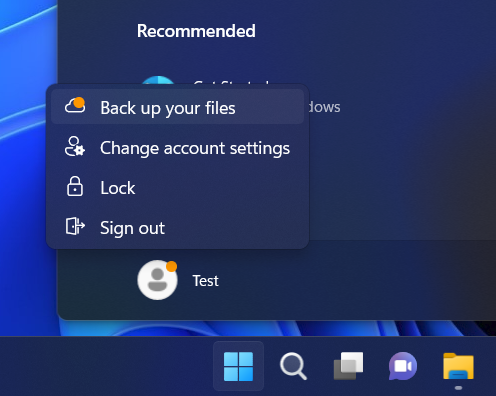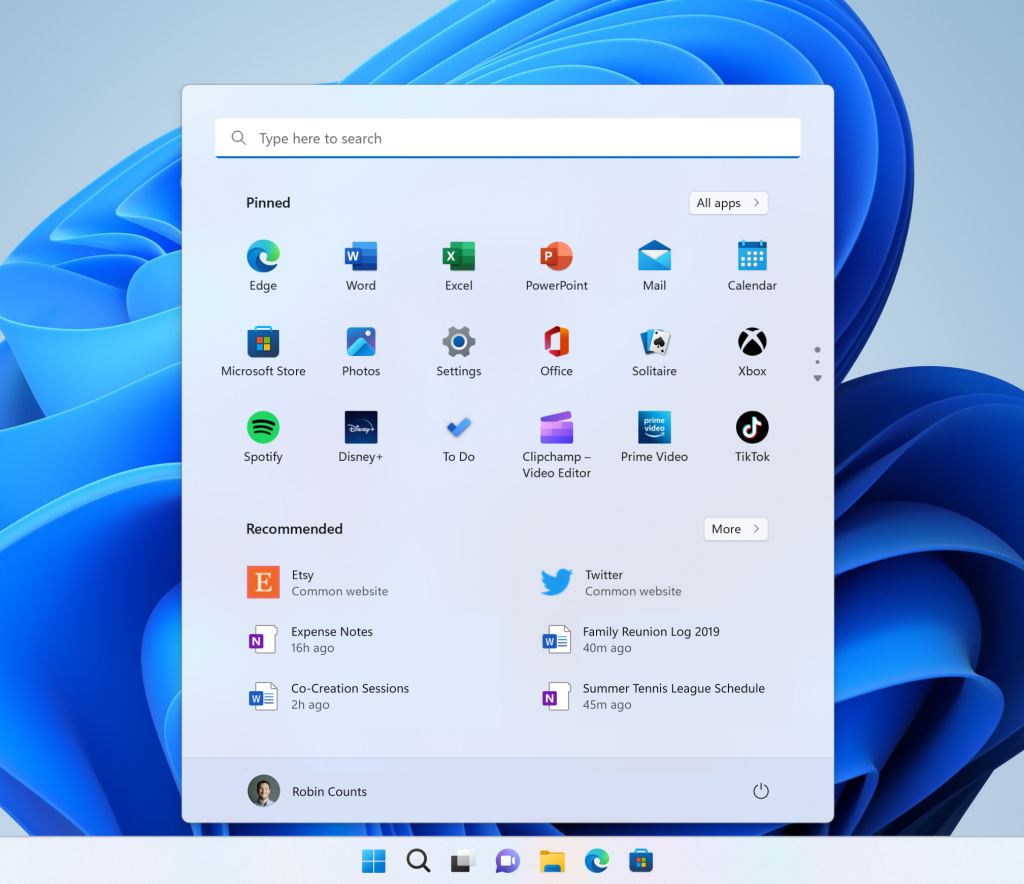The days of the classic Start Menu are numbered on Windows. Previously, the Start Menu was used by users to launch programs, access system tools and settings, and run searches.
Now, with the release of Windows 10 and even more so with Windows 11, comes a fundamental change that is turning the Start Menu into a delivery system for advertisement.
The Windows 11 Start Menu displays a list of pinned apps, a search option, and a menu that displays all installed programs. There is also a recommended section available, more about it later.

Microsoft is testing several additions to the Start Menu that will introduce advertisement to it. We recently mentioned two additions that we are aware of: website listings under recommended, and an ad in the account menu when users activate it to use functions such as switch user or sign-out.
Some of these are used to promote Microsoft services, especially those linked to subscriptions or the sharing of data. Others, like the aforementioned website recommendations in the Start Menu, promote third-party services.

In the example that Microsoft provided, the websites Etsy and Twitter were promoted as “common websites” under the recommended section of the Start Menu.
Microsoft provides the following description for the feature:
“We’ve been working on adding more valuable content to the Recommended section in Start and are excited to introduce a new content type: websites.
For the first phase, we will recommend common websites based on your region or browsing history to help you easily get back to the websites you care about. This can be controlled by right-clicking on a website and choosing to remove that website individually or to stop showing all recommended websites entirely.”
The company suggests that website recommendations are one type of “valuable content” that it is working on right now to improve the Start Menu of the operating system. The feature derives the sites from the user’s browsing history and a list of common regional websites. While Microsoft makes no mention of it, it is likely that only Edge’s browsing history is one of the sources of the feature.
Admittedly, users may remove individual websites from Start or disable the feature entirely, according to Microsoft. Microsoft refers to the current implementation as the first phase, which suggests that the company has plans to change the feature in the future. Information on how the next phase could look like is missing, however.
It is unclear for which group of users Microsoft created the website listings under recommendations. The generic listings display just the site name; users who know about them do not need them listed there, and users who don’t, may not click because they do not know these sites.
It looks as if this is just another way of getting users to use Microsoft Edge, the browser that is opened when users activate the links in the Start Menu.
Closing Words
Last year, I wrote The Windows 11 Start Menu is barely usable. The launch of Windows 11 and the redesigned Start Menu reduced its functionality compared to Windows 10. Microsoft removed several features, including the ability to resize the start menu. Some, like the ability to create folders, were reintroduced in the Windows 11 2022 Update, but others won’t.
The fixed design, with the pinned section at the top and the recommended section below it, is still not customizable. Users can hide all recommended items, but the recommended section remains visible, albeit with an empty region.
Microsoft’s recent tests in Insider builds suggest that the company is interested in adding promotions to the Start menu and less in making it more usable to users of the Windows operating system.
Windows customers may switch to a third-party Start Menu instead. The $4.99 applications Start11 and StartAllBack restore classic versions of the Start Menu on Windows 11.
Now You: what is your take on this development?
Thank you for being a Ghacks reader. The post Microsoft is turning Windows 11's Start Menu into an advertisement delivery system appeared first on gHacks Technology News.
